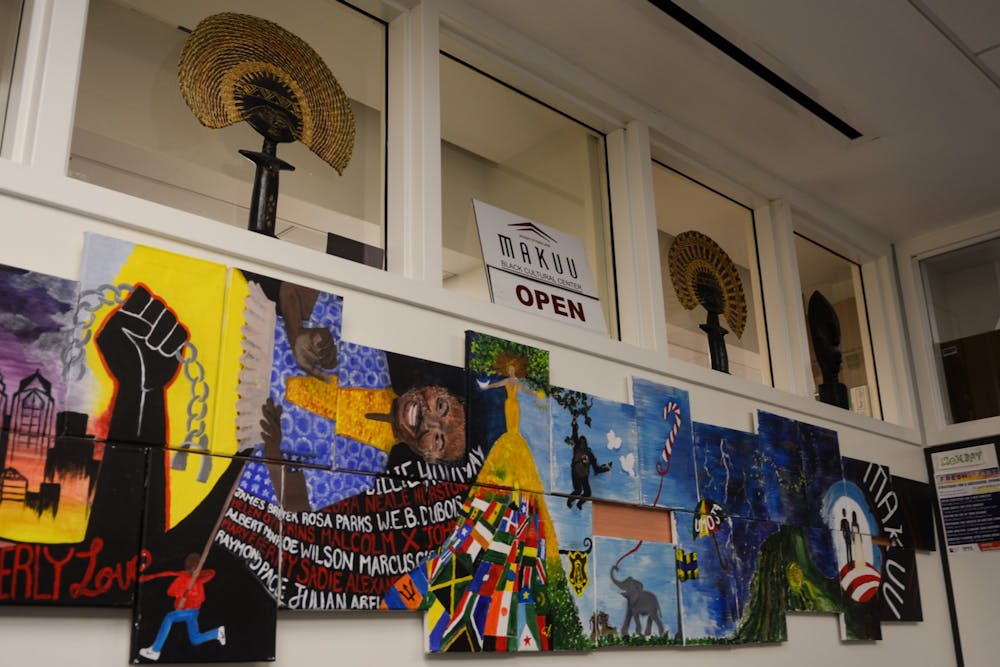Black history is Penn’s history. Like any institution of higher learning in the United States, our campuses would not be the same without the contributions of Black students. It is impossible to think about the American college experience without considering historically Black colleges and universities, or even attending a college pep rally without reminiscing about Beyonce’s Homecoming.
Black people have greatly influenced every facet of American life, from music to art, food, and fashion. Although Black History Month is nestled in February – unfortunately, the shortest month of the year – Black voices and contributions deserve to be represented in a major way nonetheless. It’s time we ventured beyond honoring figures like John Legend and into celebrating the legendary Black students who are currently attending this institution.
Black students account for seven percent of Penn's undergraduate population and have benefitted the campus culture in distinct ways. From Black Wharton's Ivy League Business Conference to the Black Student League's Faces of Black Penn and the Du Bois College House Yearbook, Black students have continuously worked to increase their cultural representation and exposure on our campus. It's time the University honored their efforts.
With the lobbying of Black students to receive preference for housing in Du Bois and the current location of Makuu, the Black Cultural Center, in the ARCH Basement, it is evident that Penn can do much more to improve the experiences of their Black population.
Equity and access is a huge issue on our campus. Black students deserve adequate space where we can congregate and support each other. Du Bois is one of these spaces, which underscores the need for Black students to receive priority in housing. Makuu’s limited space affects its impact on Penn’s Black community. Many articles have discussed the insufficient space provided to Penn’s cultural houses. If Penn can afford buildings like Tangen Hall, which cost tens of millions of dollars, why can’t the cultural houses have their own establishments?
The history of Penn’s race relations involving its Black students contains plenty of stains, with several occurring in recent memory. In 2016, Black students were added to a racist GroupMe chat tainted with derogatory comments centered around lynching and slavery. No one can forget the fraternity with a Black sex doll standing alongside the brothers while they posed for a Christmas card. In 2019, two Black Nursing students wrote an article on Medium about a traumatic interaction with Penn police.
Alongside these instances are everyday cases that we often overlook and categorize as side-effects of attending a predominantly white institution. Instances like being ignored in group project meetings, having to continually display your Penn ID, or recognizing that the majority of Greek life doesn’t exist for people of your skin tone.
Last year, Penn failed to capitalize on a golden opportunity to honor Black students and faculty. Dining hall staff proposed a traditional Black cuisine, which was denied by the administration due to the backlash at schools like NYU and Loyola. Their failure to host the dining hall tradition resulted in a protest held at the Compass. Serving fried chicken and Kool-Aid was a risk they felt they couldn't afford to take.
SEE MORE FROM SURAYYA WALTERS:
What they didn't realize, is that they failed to provide Black students and faculty with the opportunity to see their collective culture represented at-large. Blackness is so diverse and complex, and rare times like Black History Month provide the Black community with the opportunity to put our differences aside and stand in solidarity.
Additionally, we need to join the conversation on reparations. Students at Georgetown University voted for descendants of Georgetown’s slaves to receive reparations. Instead of using the term ''affirmative action'' to insinuate the academic inferiority of minorities, Black students (specifically American descendants of slavery) should be provided with the reparations they are rightfully due.
Affirmative-action originally existed to promote the progress of Black Americans, a group that spent over 200 years in slavery building the foundation of our country’s economy. Penn can no longer hide its ties to slavery. While the University denies owning slaves, the Penn & Slavery Project repurposed documents proving that a majority of Penn’s founding trustees and faculty were slave owners. One of these individuals is George Whitefield, whose infamous statue still lies in the heart of the Quad.
Whether through funding for relocation efforts for the cultural houses or by paying reparations, Penn needs to increase its advocacy on behalf of its Black students. Black students and faculty shouldn’t be held solely responsible for ensuring diversity and equality. Our University's aspirational values need to be put into practice. This Black History Month is a great time to start.

SURAYYA WALTERS is a Wharton sophomore from New Rochelle, N.Y. concentrating in Marketing and minoring in Urban Education. Her email address is surayyaw@wharton.upenn.edu.









